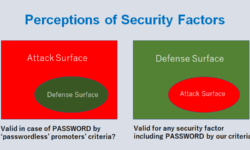Prof. John S. Torday, a Developmental Physiologist from UCLA, participates in Risk Roundup to discuss the “Science of Fear: Fight and Flight.”
The Science of Fear: Fight or Flight
It is not just the United States; across nations, people are more afraid than ever before. The growing fear has many reasons. For instance, human security seems to have been seriously threatened as COVID 19 pandemic is nowhere near to be over. Moreover, industries are collapsing, and jobs are disappearing. In the United States, the 2020 contested presidential election is growing a disturbing divide. As societal unrest increases, the world is moving towards tribalism.
People’s fear now dominates towards government, institutions, freedom, politics and political parties, media and news, big tech censorship, free speech, health, jobs, economy, survival, and security. Therefore, it is necessary to evaluate the why, how, and when of how people perceive fear. It is crucial to understand the science of fear: flight or flight.
The Choices
The term fight-or-flight represents our ancestors’ choices when faced with danger in their environment. Our ancestors only had two options—either fight or flee. It is crucial to understand that while the fight-or-flight response has been around since humankind’s beginning, we are only just learning about science, physiology, and psychology. It seems we have reached a point where we are beginning to understand the Science of Fear, the Science of Fight or Flight Response.
The troubling reality of the current state of global risks reveals why people worldwide see many dangers around them. It is probably the reason why we see increased fight or flight response in humans. However, the growing concern is that while our ancestors in ancient times depended on the tools they had—we are a civilized society—and we have evolved in how we solve problems and address threats in our surroundings. So, the question is, what is causing the failure of civilized society? What is causing our civilization’s breakdown thinking and going back to our ancestral tools and techniques of fight or flight?
There is no denying that there are threats all around us. There is no denying that the reality is so grim that a growing number of people are facing existential risks. So, amidst growing survival and security threats, what chain of reactions mobilize for the human body’s needed resources when a threat is detected?
In the absence of societal structures to calm fears, we must evaluate:
- Where will the fight-or-flight response take humanity?
- What are the growing threats that people perceive in their environment?
- What are we doing to calm those fears? What are we doing to solve those problems?
- What can be done to bring accountability to everyone’s actions?
- What can be done to bring neutrality and objectivity in the news that is now widely perceived as propaganda?
- What can be done to manage the horrors of social media?
- What can be done to help people in how to cope with the growing insecurities?
- What can be done to manage the growing societal risks?
Today, the environment that can trigger fight or flight response can be for our societal security, economic security, national security, and more. The question is whether the choices are limited to either fight or flee. Perhaps we, as a civilized society, can come up with a better alternative. The time is now to understand the Science of Fear for humanity’s future.
For more, please watch the Risk Roundup Webcast or hear the Risk Roundup Podcast
About the Guest
Prof. John S. Torday is a Developmental Physiologist from UCLA based in the United States. His lung development career was launched four decades ago by the serendipitous finding that a simple molecule like cortisol could effectively accelerate fetal lung development. This phenomenon changed reproductive medicine overnight, reducing the preterm infant mortality rate from as high as 70% to nearly zero for preterm births. As a working scientist, this made no sense but was impossible to ignore- why should hormones have anything to do with the respiratory system? On the other hand, such chance findings are mainly the history of biomedical research. He thinks that such paradoxes prevail because we are using the wrong logic. He believes that the way to make biology and medicine rational and predictive is by reducing cell biology evolution, as shown in his book Evolutionary Biology, Cell-Cell Communication, and Complex Disease.
About the Host of Risk Roundup
Jayshree Pandya (née Bhatt), Ph.D., a leading expert at the intersection of science, technology, and security, is the Founder and Chief Executive Officer of Risk Group LLC, host of influential Risk Roundup Podcast/Vodcast, an award-winning Scientist, and a Futurist passionate about protecting the Future of Humanity.
This passion and dedication to protecting the collective future have taken Dr. Pandya on a journey to understand the language of the universe. Her quest for a security algorithm drives her involvement in a wide range of research to understand the core mechanisms by which the cosmos operates and where the existential risks emerge for the human species. Her research across many domains has contributed to more than 100 publications and is pursued to provide security solutions for humanity’s future. She is the author of the books Strategic Security Risk Report 2021, Geopolitics of Cybersecurity, and The Global Age. Her upcoming books are on Cyberwarfare, Pandemics, and Artificial Intelligence.
About Risk Roundup
Through the Risk Roundup initiative, Risk Group is on a mission to talk with a billion people: innovators, scientists, entrepreneurs, futurists, technologists, policymakers, to decision-makers. The reason behind this effort is to research, review, rate, and report strategic security risks facing humanity. This collective intelligence effort is essential to understand where we need to focus on our collective security–and what destructive forces we need to be mindful about.
Risk Roundup is released in both audio (Podcast) and video (Webcast) format. It is available for subscription at (Risk Group Website, iTunes, Google Play, Stitcher Radio, Android, and Risk Group Professional Social Media).
About Risk Group
Risk Group is a Strategic Security Risk Research Platform and Community.
Copyright Risk Group LLC. All Rights Reserved





 Disambiguation, Evolution and Mathematical Knots as Topologies
Disambiguation, Evolution and Mathematical Knots as Topologies